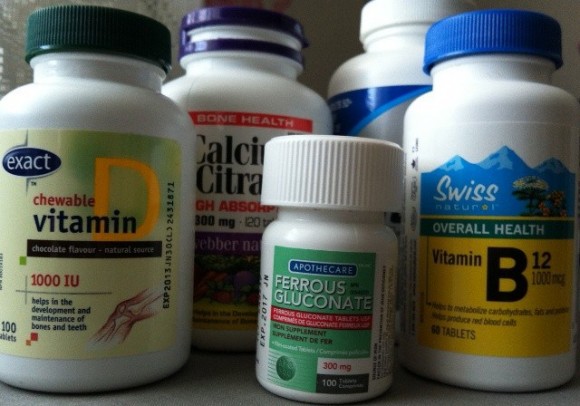There has been a long standing debate about the effects of eating eggs and recipes containing eggs on blood cholesterol levels.
Information on healthy eating has shown that eggs are an excellent source of nutrients and protein, and can be eating regularly as part of a nutritious healthy diet. If you already have high blood cholesterol levels, information on healthy eating recommends that you eat more egg whites only rather than the whole egg.
Information on healthy eating shows that whole eggs have about.36 g of Cholesterol. The egg white alone has.24g and the yolk alone has.61g. So you can see that on the whole, egg consumption is not nearly as harmful as it was once thought to be.
Essential Nutrients
The egg is considered to be one of Nature’s “perfect foods”. Eggs contain 6.3g of Protein, and at least a trace of everything from B vitamins, riboflavin, thiamine, iron, magnesium, phosphorus, zinc and Vitamins A, D and E. The egg contains 10% of your daily recommended requirement of Vitamin D and Riboflavin and is an important source of choline.
The egg also contains 4.4 g of fat. This is broken down into Saturated fat (1.6g), polyunsaturated fat (1g), and monounsaturated fat (1.8g). So if you are eating a low fat diet, information on healthy eating recommends you limit your consumption of eggs.
Eggs and Weight Loss
It appears to be common knowledge that eating eggs will raise your cholesterol level. Eggs are a rich source of cholesterol, so it stands to reason that eating them would raise total cholesterol levels in the body. However, things that seem self evident may actually not be the way they appear to be at first sight.
It turns out that most of the cholesterol in our blood comes from our own liver. The body has the ability to adjust its manufacture rate of cholesterol so that when we eat more of it, less is made, keeping the total levels about the same. Why would we make our own cholesterol? It is a precursor for many important molecules in the body, such as the sex hormones estrogen and testosterone, and the corticosteroids cortisone and aldosterone. Cholesterol is also incorporated into cellular membranes where it helps maintain the optimum degree of fluidity.
The physician and researcher Uffe Ravnskov performed an experiment on himself to see if the cholesterol in eggs raises the cholesterol levels in the blood. He measured his total cholesterol levels while increasing the number of eggs he ate each day, until he reached eight eggs a day. He found that his cholesterol levels did not increase, but remained at the same level as when he ate his customary two eggs a day. Dr. Ravnskov’s experiment only lasted eight days, during five of which he was eating eight eggs a day.
A similar result was obtained in a controlled Canadian study (2) testing 28 male individuals with normal cholesterol levels over a period of 14 weeks (including times at which the subjects were not eating eggs). The total cholesterol levels of the individuals in the study did not change significantly while eating 4 eggs a day. They actually did go up by 6.6% average, but this amount was not statistically significant in that study. The HDL cholesterol levels increased by the also non-significant amount of 3.8%, consuming a total average of 715 mg cholesterol in the four eggs a day (about 2.4 times the maximum recommended daily amount of 300 mg in the US). The same study did find a significant increase in the platelet membrane levels of the essential fatty acid DHA in the subjects who were eating eggs laid by hens eating a diet enriched in flax seed.
None of the study subjects in the previous study developed significantly raised cholesterol levels. However, 2 out of 25 already hypercholesterolemic participants in a different study (3) developed a significant increase in their total and LDL cholesterol levels after eating 12 eggs a week for 6 weeks.
As for many questions in life, there is no absolute answer. For most people, their cholesterol levels will not increase from eating an egg a day. This may not be true for a subset of the population, especially among those who already have high cholesterol levels. The subjects in the last study mentioned were on a low-fat diet, which may have had an important impact on the results, as low-fat can usually be equated with high-carbohydrate. According to Dr. Ravnskov, high cholesterol levels are not correlated with any reduction in life expectancy or increase in heart disease, especially for those over the age of 47 years, making the whole fixation on cholesterol a moot point.
You can use eggs or egg whites in a variety of dishes or eat them plain. They make a wonderful breakfast or anytime food.
If you are looking at information on healthy eating to lose weight, you will find a recent study showed that people who ate eggs for breakfast daily lost more weight than people who ate a bagel for breakfast.
So if we study information on healthy eating and the part eggs can play in your healthy diet, we find a lot of evidence in favor of eating eggs. We do recommend trying the many different ways to prepare them to step away from the traditional breakfast recipes. The reason for this is the traditional food pairings do not lend themselves to a healthy diet or optimum weight.
Steer clear of eggs and bacon, ham, sausages or other so-called breakfast meats. Opt instead to eat your eggs with whole grain toast, poached w/ fish, scrambled with fresh vegetables or in a light quiche with low fat cheese and nonfat milk.
The combinations of breakfast meats with eggs led to the demonization of the egg as a breakfast food for many years. Now it has been given the green light as a nutritious whole food that can enhance your diet and your good health.







